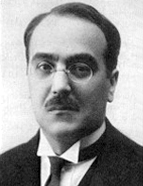

Finally, as far as Fidelino was concerned, Portugal's affirmation could only be achieved through a connection and comparison with other countries and other cultures. In his view, greater freedom of thought and a broader vision of culture and humanity would be fostered by adopting this approach. It was with these ideas in mind that he promoted and conducted comparative studies, making it possible to gauge the level of national literary and historiographical production. Furthermore, these studies also aimed to strengthen the nationalist spirit in a cosmopolitan sense, integrating Portuguese culture into European cultural trends, thus moving away from the emerging exclusivist and xenophobic nationalisms during that period.
In short, Fidelino was a conservative figure, a "dynamic traditionalist", as he called himself, whose goal was to pursue and recover national historical memory. He was not an erudite historian. He was mainly an organiser and coordinator of activities that facilitated and fostered the emergence of historical and literary studies. He produced important work in the field of historical methodology and literary criticism. His role in the renewal of these studies, as an alternative to the positivist vision of Teófilo Braga, is a clear example of his intellectual endeavour throughout the 1910s. A strong opponent of political instability and government corruption during the First Republic, he saw Sidónio Pais and Sidonism as a striking example of what he considered to be the essence of power - order, discipline, leadership and renewal. These were the concepts that structured his thinking, built on a governmental model typified by the "New Republic". Fidelino was an intellectual who played a pivotal role in the inter-secular shift. Marked by the legacy of the 70s Generation in terms of aesthetics, history and politics, he became a man of thought and culture.
